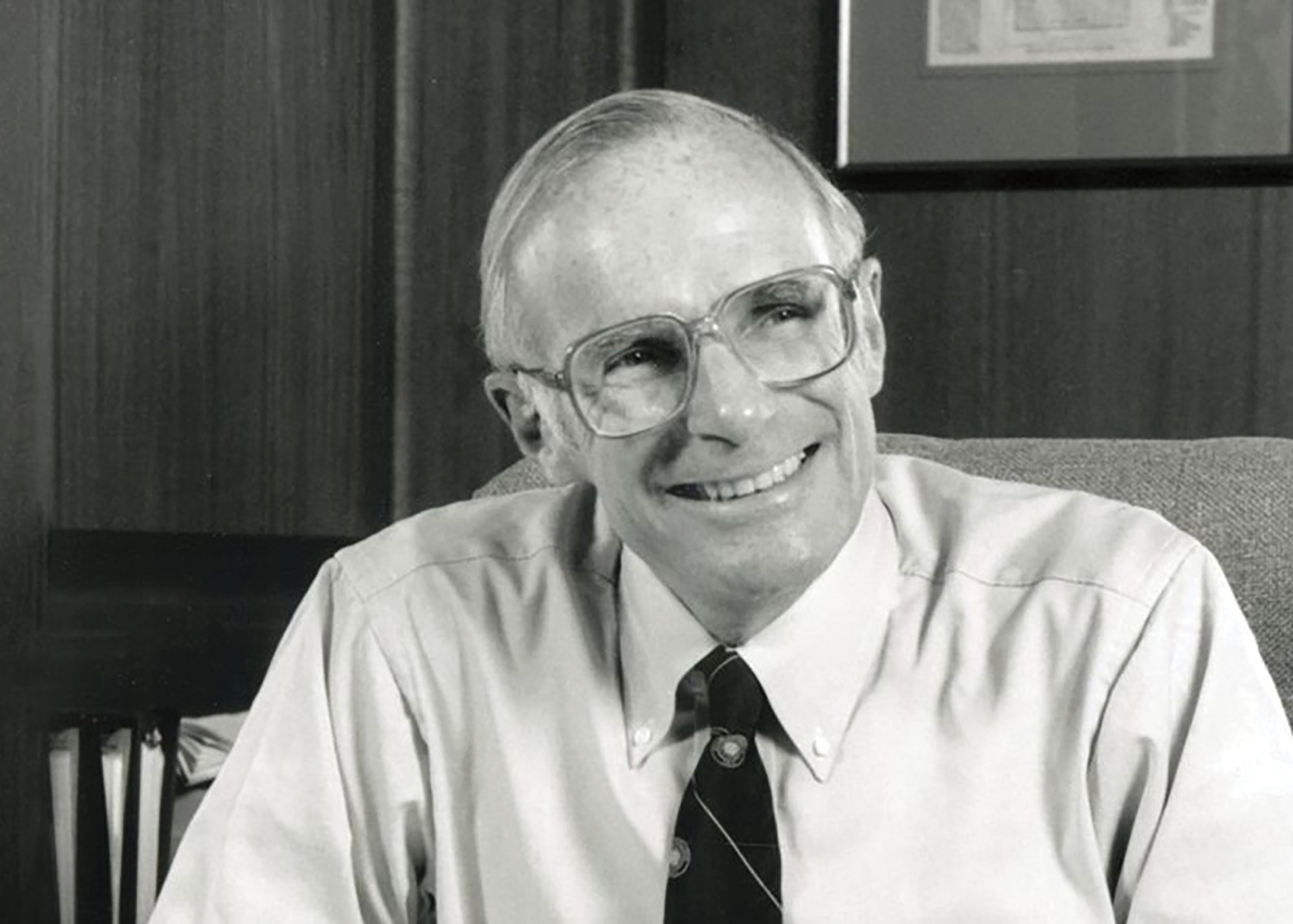William R. Cotter, Colby’s Longest-Tenured President

“Bill Cotter was undoubtedly one of the all-time great leaders for Colby, having transformed the College into a national model of excellence,” said Colby President David A. Greene. “He was fearless in his work, driven by a steady moral compass and an unshakeable belief in the power of education to improve lives and the world. He was a humanitarian at heart and in work, a trait that guided him throughout his life. And he was a teacher in both words and actions, whether it was about the U.S. judicial system, the fight for civil rights and progress, or what it means to live a good and purposeful life.”
Colby Board of Trustees Chair Jane Powers ’86 said Cotter’s legacy was profound. “I feel a tremendous sense of sadness but am so grateful for the legacy that he leaves,” said Powers, who was a student at Colby while Cotter was president. “He made a major impact on Colby and on so many of us as individuals. He was a leader of integrity and principle, and a man of extraordinary intelligence. We all have enormous respect and affection for Bill, as a past president of Colby and a truly valuable life trustee.”
During his 21-year tenure, Cotter led Colby to new levels of excellence. He raised academic standards, diversified the student body and makeup of the faculty, dramatically increased the endowment, constructed new buildings, and added more than a dozen academic disciplines and two dozen endowed faculty chairs. Through his leadership, he raised Colby’s stature as a leading liberal arts college, and his work at Colby earned him a reputation as an innovator in the field of higher education.
Cotter was firm and friendly, with an ever-present smile, kind greeting, and genuine laugh. He considered education a collaborative process between students and faculty, a give-and-take of ideas fueled by debate.
“Valid answers come from wise, dedicated, and fair-minded people freely seeking truth together,” he told the Colby community soon after he took the job. “We have these people here in abundance, and I feel privileged to be with them.”
His presidency was full of consequential decisions. He oversaw the effort to remove fraternities and sororities from campus in 1983, a decision that he later described as among his greatest achievements. An advocate for global education and international exposure, Cotter encouraged Colby students to study abroad, he secured the largest individual gift to the College at the time, to provide resources for international students, and he helped create numerous international programs, including the Oak Institute for Human Rights.
During his time as president, the value of the endowment grew from $23 million to more than $300 million, allowing the College to invest in new areas of research, including in the sciences, international studies, and in the humanities. He expanded Miller Library and directed the construction of the F. W. Olin Science Center, Collins Observatory, Lunder House, two residence halls, and other buildings. As a way to create community space, he was instrumental in the planning of a new student center, which was built in 1985 and now bears his name, Cotter Union.
Cotter led efforts to diversify the student body and faculty. Students who identified as people of color increased from 4 percent of the student body when Cotter arrived to 14 percent when he departed; the number of tenure-track faculty who identified as people of color went from 3 percent to 16 percent; and the number of women tenure-track faculty members grew from 17 percent to 39 percent.
Cotter was born March 9, 1936, in Detroit, Mich., and moved to Tarrytown, N.Y., when he was 11. Neither of his parents attended college, but Cotter set his sights high, earning admission to Harvard College and graduating magna cum laude in political science in 1958, and cum laude from Harvard Law School in 1961.
After earning his law degree, he was an MIT Fellow in Africa, serving as assistant attorney general in northern Nigeria. He worked for a New York law firm and as a White House Fellow as a special assistant to the U.S. Secretary of Commerce. He spent three years as a Ford Foundation representative in Colombia and Venezuela.
“Bill lived a full and meaningful life and leaves a profound legacy through his accomplishments and the many lives he touched,” Greene said.